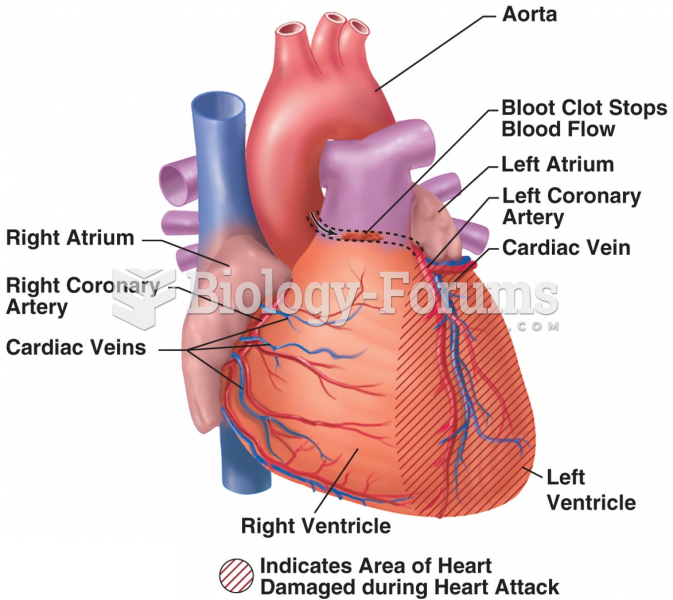This topic contains a solution. Click here to go to the answer
|
|
|
Did you know?
In the United States, an estimated 50 million unnecessary antibiotics are prescribed for viral respiratory infections.
Did you know?
Drying your hands with a paper towel will reduce the bacterial count on your hands by 45–60%.
Did you know?
Ether was used widely for surgeries but became less popular because of its flammability and its tendency to cause vomiting. In England, it was quickly replaced by chloroform, but this agent caused many deaths and lost popularity.
Did you know?
Asthma is the most common chronic childhood disease in the world. Most children who develop asthma have symptoms before they are 5 years old.
Did you know?
Women are 50% to 75% more likely than men to experience an adverse drug reaction.
 The cardiovascular system. A schematic view of the closed circulation of blood. The heart is section
The cardiovascular system. A schematic view of the closed circulation of blood. The heart is section
 This photograph of a Union soldier just freed from Andersonville prison, stunned and enraged norther
This photograph of a Union soldier just freed from Andersonville prison, stunned and enraged norther





